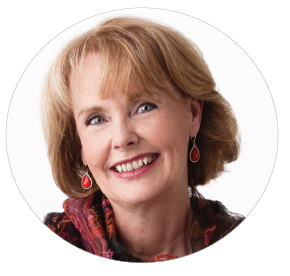December 2018
By Terrie Lupberger, CPS Partnership Community
 Power. It?s a word that conjures up lots of mixed feelings ? confusion, anger, desire, fear, misunderstanding, etc. In my work with women leaders, I find it?s a concept that continues to trip us up.
Power. It?s a word that conjures up lots of mixed feelings ? confusion, anger, desire, fear, misunderstanding, etc. In my work with women leaders, I find it?s a concept that continues to trip us up.
The confusion is understandable. Up until now, we?ve primarily had masculine role models of leadership to emulate and aspire to. ?We?ve pursued goals and accomplishments based mostly on external measures of success and in a win-lose paradigm. We?ve had to hide parts of ourselves to play the game and get ahead. Like contortionists, we?ve manipulated ourselves to fit in depending on the circumstances.
Power (and just to be clear, I?m talking about right use of power), is a really good thing. Power is what allows us to take care of what we most care about. The more you have, the better able you are to take care of what you, and those you work with, most care about.
Who wouldn?t want that?!
And, while there isn?t a definition that we can all agree on, consider that a feminine version of power can be characterized as creation with, not control over. Feminine power takes a different approach from masculine power. It privileges relationship as much as task. It emphasizes inter-action, inter-relatedness, and connection over separation. It has tolerance for uncertainty. It allows for paradox and doesn?t insist on black and white thinking for the sake of expediency, over-simplicity or political correctness.
The best version of feminine power does not exclude the best of masculine power, which has created great breakthroughs and innovations for humanity. Still, a purely masculine view and approach to power over the last several hundred years (if not longer) has resulted in an overall diminishment, not increase, of humanity?s happiness, contentment, and ability to live sustainably in the world. Healthy feminine power can bring a much needed and different approach to the issues our organizations, our families, and our communities.
So, what stops us from owning, unleashing, commanding our power?
Lots of things! There are the cultural messages we get (from our organizations, communities, families, etc.) that tell us what is acceptable or allowable. There?s our own personal history – the messages and stories we?ve told ourselves about our place in the world and our capabilities to lead. Certainly there are the biases in the systems we operate within. Then there?s our own limiting beliefs, negative self-talk, and fears.
A feminine version of power can be characterized as creation with, not control over
There are many reasons for why we struggle but the one I come across most in my work with women?s leaders is fear of judgments. Fear of being negatively judged by others, of not being approved of, of our own self-criticism keeps us playing smaller, has us be less effective and influential, keeps us from making bigger promises in our lives. I have found that it?s not fear of failing that stops us but rather the fear that comes from being judged if we fail or get it wrong.
A while ago I worked with a senior executive who was having trouble getting her ideas heard at the table of all male colleagues. After observing her in meetings I suggested to her that she was trying so hard to say the ?right? thing that she didn?t say much at all. She admitted that she wanted to be approved of, liked, positively assessed by her new colleagues. That?s understandable and even human nature, to a degree. But it was costing her power to bring new solutions and ideas to the group. It was costing her the ability to take care of what she most cared about.
From a historical perspective, there has been no other time in history in which women have had such enormous opportunity to generate change at both local and global levels. But to help create the paradigm shift so desperately needed in leadership today we must become acutely aware of every place we stop ourselves ? and diminish our power – for fear of what others will think.
Nothing less than the future is at stake.
Terrie Lupberger, MCC is a Master Certified Coach, author, and senior Executive Coach. She has been coaching and contributing to the development of the coaching profession since 1995 and presently teaches executive coaching and leadership in London and Singapore and is adjunct faculty at the University of Miami. She is contributing author to several books on coaching and is presently completing her own book for change agents and their clients on how to break through perceived limitations and make change stick.
terrielupberger.com
Contact: terrie@terrielupberger.com
![]()




Leave a Reply